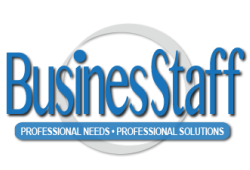“You only get one shot — do not miss your chance to blow.” Eminem may have been referring to rap battles when he dropped this lyric back in 2002, but he just as easily could have been talking aboutresumes and the job search. Resumes, after all, are your first chance to show a company what a perfect fit you are for a position — but if done incorrectly, they could also be your last. That’s why it’s absolutely critical to get them right the first time. Otherwise, all the time you spend filling out applications is essentially for naught.
But for every resume mistake, there’s a remedy. We’ve rounded up a few of the most common resume errors that prevent you from moving onto the next round, as well as solutions for how to fix them. It may take some time to tweak, but the payoff is worth it.
1. Not Customizing Your Resume
When you’re applying to multiple jobs, it’s tempting to use a generic, cookie-cutter resume and blast it out everywhere you’re applying to. But that strategy may end up preventing your resume from getting in a recruiter’s hands at all. “Most resumes are reviewed electronically before a human sees them,” shares career coach Jeanne Patti, and if your resume doesn’t have the keywords specified in the job description, it will likely be overlooked by the software.
The Fix: It may be a pain to create a customized resume for each company, but if you’re truly interested in a position, it’s worth it. “Tailoring each submittal with keywords from the job posting is critical to pass the electronic screening,” Patti says.
2. Focusing on Job Functions Over ResultsIf your resume reads like the original job description you saw when you applied, it’s time to spice it up. “Most people focus too much on their job tasks/functions to ensure [that] the keywords are in the resume, and fail to devote time to strategically marketing their best skill sets and career wins,” says Wendi Weiner, resume writer & career transition coach.
The Fix: Instead of talking about the day-to-day, describe the big picture impact you had. “The more effective thing to do is to have a separate core skills section and focus your work experience section on results, major contributions, and key projects you have worked on at various companies/organizations,” Weiner says. “It is the number one way to distinguish yourself among the hundreds of applicants applying for jobs.”
What Hiring Managers Expect on Resumes Now
3. Including an ObjectiveIf your college career counselor ever told you to put an objective like “Find an entry-level position in marketing” at the top of your resume, we’re giving you full permission to disregard them. “[One of the biggest mistakes] that I often see in a resume is an objective in lieu of a professional summary. Objectives should not be used in a resume,” Weiner says.
The Fix: Don’t just say you want a job — show recruiters why they should hire you for the job with a professional summary. “Your professional summary should resonate who you are as a professional and the high-caliber skill sets you have to offer,” explains Wiener. “Think of a professional summary as an introduction to the novel about yourself. It should allure the reader and entice him/her with information that will make him/her want to continue on reading to learn more.”
4. Poor WritingWhen it comes to your resume, your experience and career accomplishments are the most important, but how you present that information comes in at a close second. “The way you express yourself on your resume (and in any form of communication) impacts the way others perceive you,” says Angela Copeland, Career Coach. Spelling mistakes, clichés, and complex, industry-specific jargon will all count against you.
The Fix: “First, ensure your resume is grammatically correct. Then, be sure that it is worded in a professional manner with a somewhat formal tone. Last, ensure your resume is understandable to someone, even if they don’t work in your industry,” Copeland says. “The easiest way to improve your choice of words is to read your resume out loud to yourself. This can catch many of the potential issues before anyone else sees it. Then, ask a friend or family member who works in another industry to read it. If they find your resume to be confusing, consider updating the wording, so that it’s more clear.”
5. Leaving Out Social Media Links“Many people aren’t using the presence of social media to their advantage and use their resume as a stand-alone document,” Patti says. But in a constantly connected world where being transparent and informed is critical at every stage of the hiring process, it only makes sense to add links to your professional social media profiles.
The Fix: Give another layer of depth to your resume by linking to relevant, professional social media links. Patti recommends that job seekers “remove your physical address and add your LinkedIn URL. By linking to your updated profile, you will immediately gain credibility through your recommendations and endorsements of your skills and show insight into your personal brand and value,” Patti adds.
How To Ensure a Glowing Job Reference
6. Telling Instead of ShowingIt’s an age-old adage in writing: show, don’t tell. When job seekers simply state how great they are without providing any evidence, they lose credibility in recruiters’ eyes. One common way job seekers do this is by “using buzzwords (strategic, specialized, leadership, experienced, passionate, focused, creative, enthusiastic),” Patti shares.
The Fix: “Instead of using these words, demonstrate how you use that skill. It’s a powerful way to share your experiences and what makes you stand out without boring the person on the other end,” says Patti. One common approach is the STAR method — provide the situation, task, action, and result of different initiatives you have been involved in, making sure to include specific information like metrics as relevant.
But for every resume mistake, there’s a remedy. We’ve rounded up a few of the most common resume errors that prevent you from moving onto the next round, as well as solutions for how to fix them. It may take some time to tweak, but the payoff is worth it.
1. Not Customizing Your Resume
When you’re applying to multiple jobs, it’s tempting to use a generic, cookie-cutter resume and blast it out everywhere you’re applying to. But that strategy may end up preventing your resume from getting in a recruiter’s hands at all. “Most resumes are reviewed electronically before a human sees them,” shares career coach Jeanne Patti, and if your resume doesn’t have the keywords specified in the job description, it will likely be overlooked by the software.
The Fix: It may be a pain to create a customized resume for each company, but if you’re truly interested in a position, it’s worth it. “Tailoring each submittal with keywords from the job posting is critical to pass the electronic screening,” Patti says.
2. Focusing on Job Functions Over ResultsIf your resume reads like the original job description you saw when you applied, it’s time to spice it up. “Most people focus too much on their job tasks/functions to ensure [that] the keywords are in the resume, and fail to devote time to strategically marketing their best skill sets and career wins,” says Wendi Weiner, resume writer & career transition coach.
The Fix: Instead of talking about the day-to-day, describe the big picture impact you had. “The more effective thing to do is to have a separate core skills section and focus your work experience section on results, major contributions, and key projects you have worked on at various companies/organizations,” Weiner says. “It is the number one way to distinguish yourself among the hundreds of applicants applying for jobs.”
What Hiring Managers Expect on Resumes Now
3. Including an ObjectiveIf your college career counselor ever told you to put an objective like “Find an entry-level position in marketing” at the top of your resume, we’re giving you full permission to disregard them. “[One of the biggest mistakes] that I often see in a resume is an objective in lieu of a professional summary. Objectives should not be used in a resume,” Weiner says.
The Fix: Don’t just say you want a job — show recruiters why they should hire you for the job with a professional summary. “Your professional summary should resonate who you are as a professional and the high-caliber skill sets you have to offer,” explains Wiener. “Think of a professional summary as an introduction to the novel about yourself. It should allure the reader and entice him/her with information that will make him/her want to continue on reading to learn more.”
4. Poor WritingWhen it comes to your resume, your experience and career accomplishments are the most important, but how you present that information comes in at a close second. “The way you express yourself on your resume (and in any form of communication) impacts the way others perceive you,” says Angela Copeland, Career Coach. Spelling mistakes, clichés, and complex, industry-specific jargon will all count against you.
The Fix: “First, ensure your resume is grammatically correct. Then, be sure that it is worded in a professional manner with a somewhat formal tone. Last, ensure your resume is understandable to someone, even if they don’t work in your industry,” Copeland says. “The easiest way to improve your choice of words is to read your resume out loud to yourself. This can catch many of the potential issues before anyone else sees it. Then, ask a friend or family member who works in another industry to read it. If they find your resume to be confusing, consider updating the wording, so that it’s more clear.”
5. Leaving Out Social Media Links“Many people aren’t using the presence of social media to their advantage and use their resume as a stand-alone document,” Patti says. But in a constantly connected world where being transparent and informed is critical at every stage of the hiring process, it only makes sense to add links to your professional social media profiles.
The Fix: Give another layer of depth to your resume by linking to relevant, professional social media links. Patti recommends that job seekers “remove your physical address and add your LinkedIn URL. By linking to your updated profile, you will immediately gain credibility through your recommendations and endorsements of your skills and show insight into your personal brand and value,” Patti adds.
How To Ensure a Glowing Job Reference
6. Telling Instead of ShowingIt’s an age-old adage in writing: show, don’t tell. When job seekers simply state how great they are without providing any evidence, they lose credibility in recruiters’ eyes. One common way job seekers do this is by “using buzzwords (strategic, specialized, leadership, experienced, passionate, focused, creative, enthusiastic),” Patti shares.
The Fix: “Instead of using these words, demonstrate how you use that skill. It’s a powerful way to share your experiences and what makes you stand out without boring the person on the other end,” says Patti. One common approach is the STAR method — provide the situation, task, action, and result of different initiatives you have been involved in, making sure to include specific information like metrics as relevant.


 RSS Feed
RSS Feed